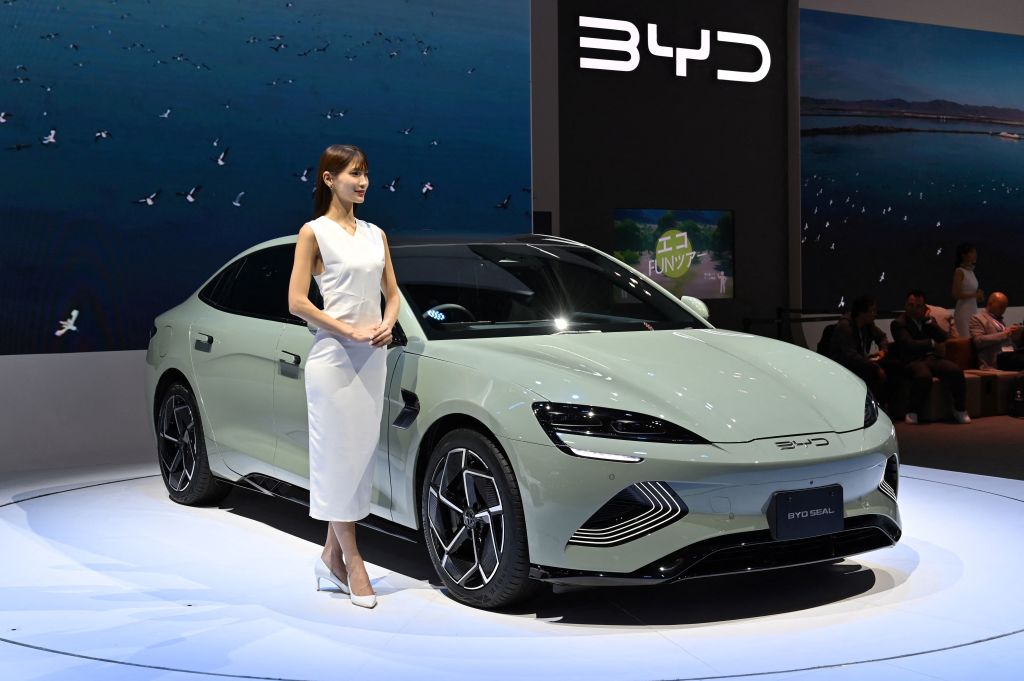The European electric vehicle industry is set to welcome a new inexpensive EV from China’s BYD Co. next year, reportedly pressuring automakers within the continent over new competition.
And all that only with massive state funding, impressive.
Do they really apply subsidies to exported cars though? 20k is about the same price as comparable Japanese mini EVs like Nissan Sakura. If the exported seagull were subsidized, surely it should be even cheaper than that?
Do they really apply subsidies to exported cars though? 20k is about the same price as comparable Japanese mini EVs like Nissan Sakura. If the exported seagull were subsidized, surely it should be even cheaper than that?
It’s a good question. Subsidies typically apply to vehicles sold within the country providing the subsidy, aiming to boost domestic sales and adoption of EVs. For exported vehicles, the pricing strategy can differ based on various factors including import tariffs, shipping costs, and market competition.
While $20k might seem comparable to Japanese mini EVs like the Nissan Sakura, there are other elements to consider. For instance, export prices may reflect different costs or include added features to meet the standards and preferences of the target market. Additionally, manufacturers might price their vehicles competitively to balance quality, brand perception, and profitability rather than just cost minimization.
In the case of the Seagull, if it were subsidized domestically but sold for around $20k internationally, it suggests that the base production costs are kept low enough to be competitive even without export subsidies. Therefore, while subsidies can influence domestic prices significantly, their impact on export prices is typically less direct and more nuanced.
Not to be rude or anything but your responses sound very much like it was generated by AI.
Did they have to call it seagull though
Why not? Seagulls are almost as majestic as Bald Eagles in my opinion lol
Wasn’t there an article last year that said that Chinese EVs have sent so many vehicles to Europe, they couldn’t get them out of the shipyards? Did that get resolved?
Wasn’t there an article last year that said that Chinese EVs have sent so many vehicles to Europe, they couldn’t get them out of the shipyards? Did that get resolved?
Yes, I recall reading about that issue as well. Chinese EV exports to Europe surged so rapidly that there were logistical challenges, including congestion at shipyards and ports. The sudden influx overwhelmed the infrastructure, leading to delays in getting vehicles from the docks to dealerships.
To address this, various measures were implemented, including improving port facilities, streamlining customs procedures, and increasing the efficiency of transportation networks. While such large-scale logistical issues can take time to fully resolve, there has been significant progress in alleviating the bottlenecks. The European market remains an important destination for Chinese EVs, and both Chinese manufacturers and European logistics providers have been working diligently to ensure a smoother flow of vehicles.
Continued monitoring and infrastructure investments are key to preventing such issues from recurring as the demand for EVs continues to grow.
And all it took was state subsidies and slave labour.
Puts me in a weird position because car prices are insane, but I also don’t want to support a genocidal regime using slave labour and is purposely undercutting foreign industries in order to kill them, with the long-term goal of ramping up prices and having the west be even more reliant on China.
We’ve seen from Germany/Russia that becoming dependent on a hostile state is a disaster waiting to happen.
I’ll just stick to my ancient Octavia for the time being, thanks.
It also took lethargic European car makers who rather lobby for combustion engine cars than go with the times






